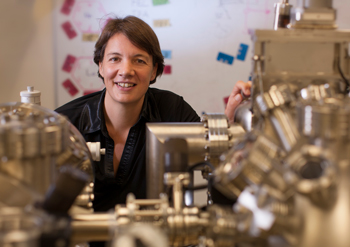The Academy regularly provides the Australian Government with feedback on important policy measures. Following is a round-up of the Academy’s submissions since November.
See all Academy submissions in full
The STEM Partnerships Forum is an initiative under the National STEM School Education Strategy and is chaired by the Chief Scientist of Australia Dr Alan Finkel AO to support more efficient and effective partnerships between schools, industry and the tertiary education sector.
The STEM Partnership Forum released an Issues Paper Optimising STEM Industry–School Partnerships: Inspiring Australia’s Next Generation, and the Academy provided a submission in response. The Academy strongly supports the mission to develop a framework for industry to play a greater and more constructive role in enhancing the role of STEM in Australia’s education system.

Australia’s migration program must support our research institutions in recruiting world-leading scientists and researchers to advance Australian science. That was the Academy’s strong message in a recent submission to the Australian Government, which is seeking stakeholder advice on future directions for Australia’s migration program—in particular, the level and the mix of next year’s intake.
More than one-third of our science, technology, education and mathematics (STEM) workforce was born overseas. Australia’s migration program enables us to leverage significant scientific international research programs to focus on Australia priorities, and Australian scientists are able to train and work in international research institutions and bring back critical knowledge, skills and contacts. We also benefit when scientists from around the world visit and work in Australia; overseas-born researchers have played an integral role in many Australian innovations, and will be instrumental in solving many of the critical scientific and related challenges facing Australia in the future.
Australia's migration policy and program can support the Government’s science, innovation and technology policies through promoting dedicated visa and migration pathways for our science workforce, allowing them to visit and work in Australia for periods of up to five years; providing pathways to permanent residency for skilled professionals and workers; and supporting cooperation between government agencies and research institutions to ensure institutional requirements are met.
Read the migration program submission
The Academy and ATSE made a joint submission to the second consultation phase of the Department of Health Review of the National Gene Technology Scheme 2017.
The two organisations consider that regulation should be based on the products and outcomes of technology applications rather than on the technical processes used to achieve them, and that regulation should focus on the potential of modified organisms to harm human health or the Australian environment.
Read the gene technology review submission
The submission to the Treasury on the Academy’s priorities for the 2018–19 Budget was made in the context of the Government’s National Innovation and Science Agenda. The Academy proposes a series of affordable, practical and realistic investments that would make significant contributions to broadening and deepening Australia’s science capabilities and deliver superior science and innovation outcomes.
Read the pre-Budget submission
The Academy made a submission to the Great Barrier Reef Marine Park Authority consultation on the Coastal Ecosystems Position Statement, the purpose of which is to improve the health of the Great Barrier Reef and outcomes for coastal ecosystems.
The Academy welcomes the goal of improving the health of the Great Barrier Reef, but considers that the 2050 Reef Sustainability Plan to improve the reef every decade between now and 2050 is no longer possible due to the bleaching of two-thirds of the shallow-water corals in the central and northern parts of the reef. The Academy is concerned the reef may no longer be able to return to its condition of 1981, when it was inscribed as a World Heritage Area by UNESCO.
Read the Great Barrier Reef submission
The Academy’s National Committee for Information and Computer Sciences made a submission in response to the consultation paper The digital economy: opening up the conversation, issued by the Department of Industry, Innovation and Science.
The Committee outlines its vision for Australia’s digital economy in 2030. It identifies two key areas in which government can contribute: promoting the development of the digital economy, fostering innovation, and providing policy settings that assist digital entrepreneurship.
Read the digital economy submission
The Academy’s National Committee for Space and Radio Science made a submission to the Joint Standing Committee on Treaties inquiry on the proposed Agreement between the Australian and US governments for Space Vehicle Tracking and Communication Facilities.
The Committee supports the Agreement’s aim to formalise arrangements between Australia and the USA regarding operation of NASA space tracking and communication facilities, as it delivers substantial dividends to both parties. The Committee believes the Agreement will also facilitate ongoing collaboration between Australian and NASA scientists and provide employment for specialist Australian personnel. Overall, the shared facilities, the data they generate, and the cooperation between Australian and US scientists deliver substantial benefits for Australia’s broader national and scientific interests.
Read the Joint Standing Committee on Treaties submission
The Academy made a submission to the Department of Education and Training Review to Achieve Educational Excellence in Australian Schools.
Improving Australian students’ performance in STEM subjects requires sustained and significant efforts from the Australian Government and state and territory governments, as well as from schools, universities and sector-based organisations. The Academy recommends detailed consideration of the way national and international performance metrics are used, and a focus on supporting new and existing teachers through best-practice, evidence-based programs and training. Education programs should be built around an inquiry-based learning model, which the Academy has been developing in science and maths for many years, as these have been shown to be highly effective in improving student engagement and teacher abilities.
Read the educational excellence submission
Read a summary of the submission
© 2025 Australian Academy of Science